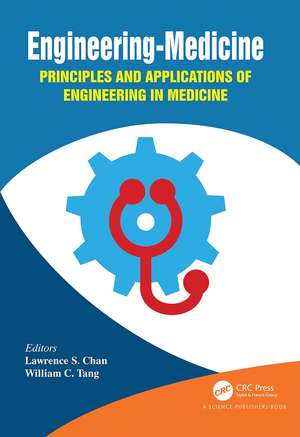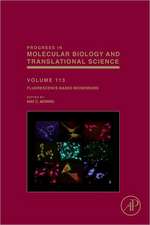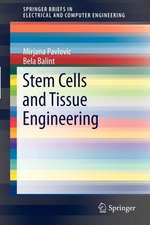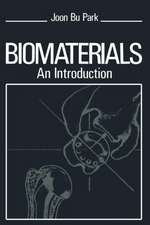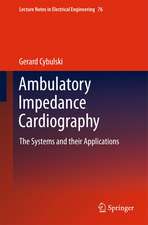Engineering-Medicine: Principles and Applications of Engineering in Medicine
Editat de Lawrence S. Chan, William C. Tangen Limba Engleză Paperback – 31 mar 2021
| Toate formatele și edițiile | Preț | Express |
|---|---|---|
| Paperback (1) | 422.56 lei 6-8 săpt. | |
| CRC Press – 31 mar 2021 | 422.56 lei 6-8 săpt. | |
| Hardback (1) | 1556.04 lei 6-8 săpt. | |
| CRC Press – 16 mai 2019 | 1556.04 lei 6-8 săpt. |
Preț: 422.56 lei
Preț vechi: 444.80 lei
-5% Nou
Puncte Express: 634
Preț estimativ în valută:
80.85€ • 84.42$ • 66.92£
80.85€ • 84.42$ • 66.92£
Carte tipărită la comandă
Livrare economică 05-19 aprilie
Preluare comenzi: 021 569.72.76
Specificații
ISBN-13: 9780367779801
ISBN-10: 0367779803
Pagini: 356
Dimensiuni: 178 x 254 x 19 mm
Greutate: 0.66 kg
Ediția:1
Editura: CRC Press
Colecția CRC Press
Locul publicării:Boca Raton, United States
ISBN-10: 0367779803
Pagini: 356
Dimensiuni: 178 x 254 x 19 mm
Greutate: 0.66 kg
Ediția:1
Editura: CRC Press
Colecția CRC Press
Locul publicării:Boca Raton, United States
Cuprins
Introduction to Engineering-Medicine. Engineering Principles Overview. Engineering-Medicine Principles Overview. Systems Approach to Biology. Systems Integration. Efficiency. Problem Identification and Solution Process. Design & Optimization. Precision. Invention and Innovation. Advanced Biotechnology. Biomedical Imaging. Big Data and Statistics. Quality Control & Improvement. General Ethical Perspectives. Ethics in the Era of Precision Medicine.
Notă biografică
Lawrence S. Chan, MD, a graduate of Massachusetts Institute of Technology with double B.S. degrees in Chemical Engineering and Life Sciences, obtained his medical training at the University of Pennsylvania School of Medicine and a M.D. degree. After an internship in Internal Medicine at the Cooper Hospital/University of Medical Center, he then completed his residency training in Dermatology and a fellowship training in Immunology at the University of Michigan Medical Center. He initially served as a junior faculty member at the Wayne State University and Northwestern University. He subsequently served as the Chief of Dermatology at the University of Illinois Hospital and the Department Head of Dermatology at the University of Illinois College of Medicine at Chicago for 11 years as well as the Program Director of Dermatology Residency for 9 years. His research interests focused on the immune mechanisms of autoimmune and inflammatory skin diseases and had received grant funding from the Dermatology Foundation, Veterans Affairs, and the National Institutes of Health. His academic achievements include more than 110 full-length biomedical publications, 35 book chapters, and 3 textbooks. Professionally Dr. Chan has been recognized as one of the "America’s Top Physicians" in Guide to America’s Top Physicians by Consumers’ Research Council of America. Currently he is the Dr. Orville J. Stone Endowed Professor of Dermatology at the University of Illinois College of Medicine and has recently completed a master degree in Health Administration (MHA) under the Clinician Executive Master in Health Administration (CEMHA) Program at University of Illinois at Chicago School of Public Health.
William C. Tang, PhD., obtained his B.S., M.S. and Ph.D. degree in Electrical Engineering and Computer Sciences from University of California at Berkeley. Dr. Tang has substantial hands-on engineering and leadership experience in both academic arena and real-life industry. He has previously served as Member of Technical Staff at TRW, Engineer Senior at IBM Corp., Sensor Research Manager at Ford Microelectronics, Inc., Group Supervisor at Caltech Jet Propulsion Laboratory, Program Manager at the Defense Advanced Research Projects Agency, and subsequently served as the founding Associate Dean for Research of the Henry Samueli School of Engineering at the University of California, Irvine. Currently he is Professor of Biomedical Engineering with joint appointments with the Electrical Engineering and Computer Sciences and the Chemical Engineering and Materials Science Departments at the same institution. His major research interests are in the development of devices and platforms that enable both in-vitro and in-vivo studies of the mechanical aspects of physiological activities at the length-scales that are beyond the reach of traditional biomedical instrumentation. His Microbiomechanics Laboratory has been supported by grants from DARPA, NIH, NSF, and private and foundation donations. His academic achievements include over 100 full-length biomedical publications, 4 book chapters, 8 patents, and multiple Achievement Awards.
William C. Tang, PhD., obtained his B.S., M.S. and Ph.D. degree in Electrical Engineering and Computer Sciences from University of California at Berkeley. Dr. Tang has substantial hands-on engineering and leadership experience in both academic arena and real-life industry. He has previously served as Member of Technical Staff at TRW, Engineer Senior at IBM Corp., Sensor Research Manager at Ford Microelectronics, Inc., Group Supervisor at Caltech Jet Propulsion Laboratory, Program Manager at the Defense Advanced Research Projects Agency, and subsequently served as the founding Associate Dean for Research of the Henry Samueli School of Engineering at the University of California, Irvine. Currently he is Professor of Biomedical Engineering with joint appointments with the Electrical Engineering and Computer Sciences and the Chemical Engineering and Materials Science Departments at the same institution. His major research interests are in the development of devices and platforms that enable both in-vitro and in-vivo studies of the mechanical aspects of physiological activities at the length-scales that are beyond the reach of traditional biomedical instrumentation. His Microbiomechanics Laboratory has been supported by grants from DARPA, NIH, NSF, and private and foundation donations. His academic achievements include over 100 full-length biomedical publications, 4 book chapters, 8 patents, and multiple Achievement Awards.
Descriere
This textbok incorporates engineering principles into medical education and practice. It provides the general framework and global perspective on how engineering principles can positively impact medicine.
